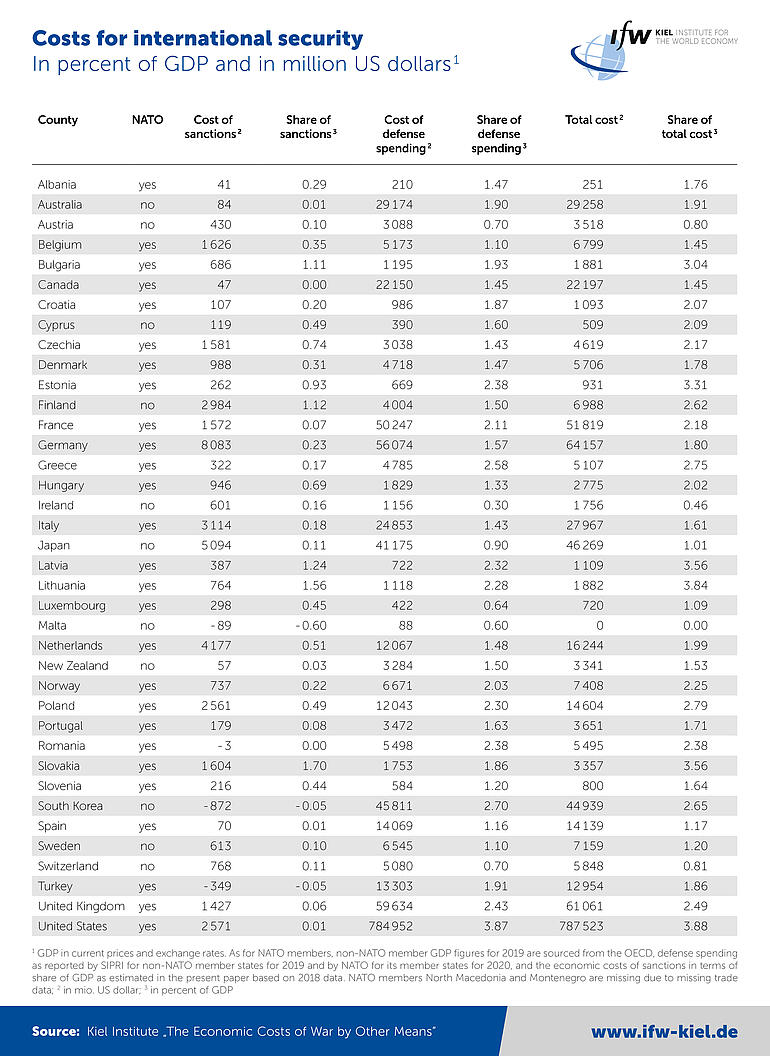News
“War by other means” raises effective NATO contributions

“The so-called war by other means, i.e., the use of one’s own global economic significance in the fight against political opponents, is increasingly considered as part of a foreign policy strategy, especially by the USA. It is therefore only justified to recognize its economic costs as a monetary contribution to NATO just as much as conventional defense spending,” said Kiel Institute President Gabriel Felbermayr on the occasion of a Kiel Institute study published today (Chowdhry, Felbermayr, Hinz, Jacobs, Kamin, Mahlkow: “The Economic Costs of War by Other Means”).
Based on freshly released defence expenditure numbers by NATO and recent trade data , the study finds that Germany's financial contribution to collective security and defense increases from 1.57 percent to 1.80 percent of gross domestic product (GDP), if the economic costs of sanctions are included.
EU-wide, the effective financial contribution to NATO rises from 1.65 to 1.89 percent of GDP. Considering the 2-percent-goal, taking into account the cost of sanctions makes a difference especially for the Eastern European countries, as they are strongly affected by sanctions against Russia.
In the US, the financial contribution increases from 3.87 percent of GDP to 3.88 percent. Hence, the country suffers only minimally from the consequences of economic sanctions. However, with 785 billion US dollars the US continue to bear the largest share of the total defense budget of the NATO states of 1,1 trillion US dollars.
Felbermayr: “Including the cost of sanctions changes the overall picture of contribution payments within NATO. According to our calculations, Germany and the EU are making a much larger financial contribution and are thus being much closer to the 2-percent goal than is generally claimed. At least to some extent this invalidates the US criticism of our defence expenditure”.
In 2018, NATO’s economic sanctions caused economic damage among its member states of about 34 billion US dollars. This estimate is calculated primarily from lower gains from trade. It takes into account that trade in nonsanctioned products also suffers and that global supply chains are interrupted and have to be reorganized.
With 29.5 billion US dollars this economic damage is largely borne by the countries of the EU. Germany bears the highest economic costs of 8,1 billion US dollars within the NATO member states, which corresponds to 0.23 percent of GDP. The US, on the other hand, bears only a relatively small economic damage of 2.6 billion US dollars, 0.01 percent of GDP, due to the sanctions.
Lithuania is hit the hardest by the economic sanctions in relative terms. The damage of 0,8 billion US dollars corresponds to 1.56 percent of GDP. All in all, the country thus makes the second highest contribution to NATO’s goals with 3.84 percent of its economic output after the US.
